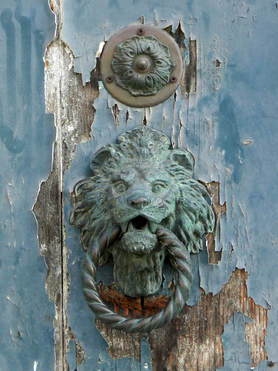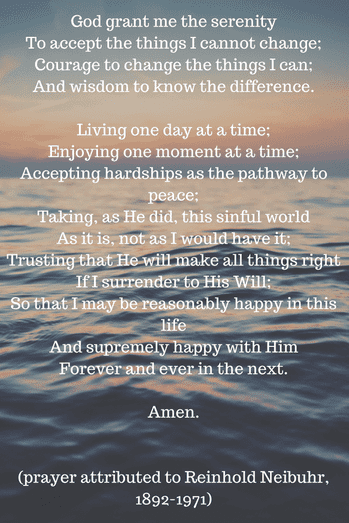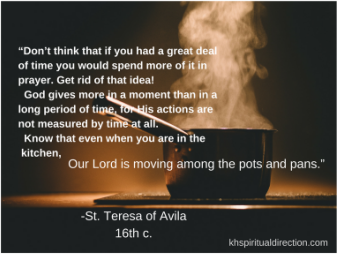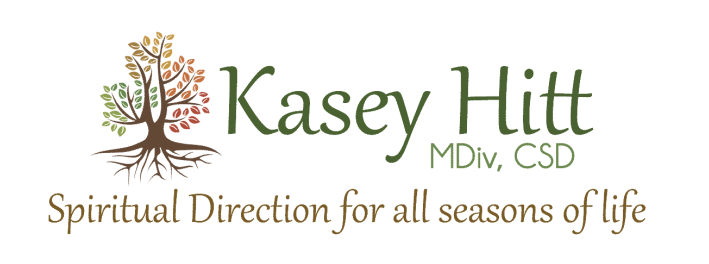 What do we do with deep questions? While similar to last week's Trading Theological Certainty for Freedom, rather than inviting us to ask the questions, I want to consider what to do once a difficult question is voiced. Why? Unfortunately we're masters at offering too simplistic of answers and explanations whether in conversation or from the pulpit. Instead, let's keep a few things in mind and heart: Be wary of easy answers. Whether you are on the giving or receiving end, an easy answer is often not a gift. Writes poet-philosopher David Whyte in his poem Tobar Phadraic, "Be impatient with easy explanations..." Indeed! Have you ever cringed, felt a shot of anger or been further weighed down when you've read or been offered an easy explanation? You may have wanted to shout, "What I'm wrestling with isn't that easy, if you can't do better than that, don't say anything at all!" If tempted to give an easy answer in response to a person's painful situation or deep question, bite your tongue (especially if it's getting ready to spout "spiritual" words) and offer your simple presence instead! And if said person longs for you to give them an answer, let Rich Mullins' song lyric from Playing Hard to Get be your guide, "And I know it would not hurt any less, even if it could be explained." Live the questions. Jesus put it this way, "Ask and it will be given to you; seek and you will find; knock and the door will be opened to you. For everyone who asks receives; the one who seeks finds; and to the one who knocks, the door will be opened" (Matt. 7) He just doesn't tell us when or how. So we're to continue to ask, seek and knock. Rainer Maria Rilke put it this way, "I would like to beg you dear Sir, as well as I can, to have patience with everything unresolved in your heart and to try to love the questions themselves as if they were locked rooms or books written in a very foreign language. Don’t search for the answers, which could not be given to you now, because you would not be able to live them. And the point is to live everything. Live the questions now. Perhaps then, someday far in the future, you will gradually, without even noticing it, live your way into the answer." You can read even more in his 1908, Letters to a Young Poet. Engage the imagination, body, intuition and other people. You live the questions by living them with your whole self in the whole of life. This is not some mind game or exam you'll be quizzed on later with a passing or failing grade (though there's bad theology out there that resembles such!). Listen to your dreams, both the daytime bidden and the nighttime unbidden. Your body has something to say to your questions, why not listen? You know those inklings, suspicions, gut feelings and hunches? Don't toss them out, they, too are valuable companions. And find at least one safe person, whether a spiritual director, close friend or family member, to engage in soul-shaping conversation. Saint Basil of Caesarea once wrote, "God the Creator has arranged things so that we need each other." In other words, we do not have to ask, seek, and knock alone. I hope you weren't expecting a black and white explanation of how to respond to deep (and rarely black & white) questions! Whether you are asking or listening to the question, may you enter in with your whole self finding the question or difficult situation a doorway leading deeper into the transforming, life-giving Mystery.
 Certainties. My early spiritual life revolved around, even depended on them. Taking my cues from respected authority figures, I lived by the motto, "Just tell me what to do and I'll do it." I loved a good black and white answer. Right beliefs. Right actions. This wasn't limited to what I should theologically believe. I had a lot of "shoulds," from food to parenting. Constantly searching for, collecting and then, more often then not, spewing certainties...ugh...talk about exhausting! Authenticity is important to me so that brought another layer of exhaustion when what I thought I was certain about did not align with my intuition! What was I to do? Baruch Spinoza, the 17th century Dutch philosopher wrote of three ways of knowing:
All have their place. I had a good theological container growing up. The problem became when I did not feel the freedom to step out of the container to dialogue and chose to get really good at staying in the initial "box" (which is the Land of Certitude). Why didn't I? It doesn't take long to notice that when you move from Tradition to Reason to Intuition, you begin to step out of safe, socially acceptable boxes. Questioning what you've been told is true can be scary. Not only is it uncomfortable, your fear can be well-founded as you read about those "heretics" who did the same thing in ages past (i.e. who wants to be burned at a stake literally or even metaphorically?!)! But as Paul wrote to those in Corinth, "Now the Lord is the Spirit and where the Spirit of the Lord is, there is freedom" (II Corinthians 3:17). I no longer see freedom in staying in an authority decreed box of certitudes (Jesus didn't either). Refusing to enter into dialogue with our most important beliefs and deepest questions does not bring life. Sure we may not be crucified or burned at a stake or attacked by internet trolls, but to stay in a box isn't living life at its fullest (as Jesus invites). Now we don't have to burn the box. Jesus spoke to and within his tradition. Instead we can step out to get a better view of the tradition, ourselves and the question we're asking. This can lead to a deepening of one's own faith and a tradition which may offer an even better starting place of knowledge for others! "In all affairs it's a healthy thing now and then to hang a question mark on the things you have long taken for granted." I couldn't agree more. It offers three freedoms or permissions: To engage other voices and ideas. My former authority-pleasing self cringed the first time I saw the above quote came from Bertrand Russell, the 19th c. philosopher and mathematician, whose personal conclusion was that he could not be a Christian. Voices like Russell's need not be ignored or feared. We have freedom to listen for life and truth everywhere, use discernment (a later post will offer discernment questions) and come to our own conclusions. My doubts and letting go of certain doctrines, like penal substitution, have happened to draw me closer to Christ. I also trust that God provides guidance and correction along my path so I am free to dialogue with the whole gamut of beliefs, opinions and experiences. And I've come to appreciate the Celtic saying, "Everyone has some of the wisdom." To ask "dangerous" questions and listen to our God-given intuition. I can dive deep into the soul rather than skim the surface of things. For me, one of those "dangerous" questions for the past decade has been, "What beliefs of mine or the church's are superstitious or fear-based?" Last year I named my journal "Fearless Adventures with My Intuition" just to encourage venturing into any "off-limits" theological areas and ask questions I had been afraid to which led to discovering a variety of ways of listening to my intuition (something I felt was stifled early on). As I look back I can see that it's actually been the Holy Spirit (who is Truth) who coaxed me out of the box and into the questions! To enter and even embrace the "Cloud of Unknowing." It's a holy place. Admittedly, it can be uncomfortable (and even scary). Especially for a church leader or spiritual director (although the latter is typically more comfortable with the silence found there)! Being in a place of not having answers requires trust. We are invited to trust that God is guiding us into deeper truth even if we cannot articulate it yet. Our hearts can be at peace with those in-between states, rather than fretting to find another certainty to fill the empty space (and satisfy our ego by having an answer to give others). The "Cloud of Unknowing" offers gifts that are deeper than words and gifts us to be a safe place for others' questions and doubts. In spiritual direction, you are free to explore. I welcome your questions and doubts. Most likely I will not have answers. I want to accompany you in stepping out of the box rather than give you a different one to step into. We'll have soul-shaping conversations as we dialogue with Scripture, reason, tradition(s) and experience. We'll listen to ways your body and imagination are speaking. Then I'll join you in the "Cloud of Unknowing" until that Voice coming from outside (but also through) us brings revelation. Which could be the freedom to let go of some certainties!
 My mom has always kept a prayer list on her fridge. I know a lot of "prayer warriors" who daily present people's requests to God. But I don't. I'm grateful for the "prayer list praying people." I know I can contact them to add my request knowing they will routinely lift each name and situation to God. I'm just not one of those people. That kind of praying is too heavy for my shoulders. I read nothing of Jesus or the apostle Paul keeping running prayer lists. Although I think we'd agree that Jesus was truly present with whoever was in his presence and Paul offered prayers whenever someone came to his mind. I just don't think the latter's "pray without ceasing" was about cycling endlessly through a list. After wading through the guilt of not wanting to and not being able to pray like others, I finally discovered a way of intercession (praying for or on behalf of someone) that better fits me. And my shoulders recognize it as the light kind of burden Jesus spoke of. Intercessory prayer takes different forms. Rather than prayer lists, for me it's "presence" and here's what it looks like: Presence when with a person. When I sit with you as a spiritual director, I ask the Spirit of God to reveal, direct, and guide you. As you talk, I listen to the holy invitations in your life. I enter into silence on your behalf willing to listen and receive whatever is offered. In short, I give you my full attention. My hope is the same when listening to a friend in casual conversation. And if you're family, well, I continue to work on it...sometimes I'm more present than others! Presence when a person is brought to mind. Over the years I've found that when someone is brought to my mind, I later discover it's at the precise moment when prayer was needed. A conversation has come up at a later time or I've felt nudged to go beyond prayer and contact the person. Even when we haven't been in touch for years and I have no idea of their need, contacting them has always revealed something was indeed going on that needed prayer! So know, if your name or face crosses my mind or you show up in a nighttime dream, I take it as an invitation to intercessory prayer. Presence with requests for prayer. If you ask or email me to pray for you (and please do!), I'll pray right then or soon after...maybe with you, usually silently or actually emailing you my prayer. Then I'll let it go, placing you and your request in God's hands and trusting that if I'm to pray for you again, the Spirit will bring you to my mind. If I only pray for you that one time, I cannot think of better hands (or shoulders) to entrust your burden to (much stronger and gentler than my own)! As 14th century saint Hildegard of Bingen once said, "God hugs you. You are encircled by the arms of the mystery of God." And on your behalf and for you, I believe this to be true, whether I pray for you once or one hundred times.
 This week's post, Trading Daily Quiet Time Guilt for Pots & Pans somehow posted last week. Now normally this would cause me to scurry to find a way to fix it or beat myself up for it happening at all. Is it it even a big deal? No. But my internal critic doesn't differentiate. However, I surprised myself. After an initial, "Oh, that's not what I wanted to happen," I let it be. Hallelujah! I think that response deserves it's own post. I'm in the midst of trading perfection for serenity. Small step by small step. One day at a time. There's a little phrase in the extended well-known Serenity Prayer that I spent a lot of time with last year at the suggestion of my spiritual director who noticed my constant pursuit (and exhaustion) of doing/being better. See, my internal critics (or rather my whole family of internal critics) think they're helping me by constantly bombarding my mind with their own version of the Lowe's motto, "Never Stop Improving." Here's the thing: these critical parts want me to be happy. So they tirelessly work to search, compare, and judge to find the perfect standard then work tirelessly to reach it. They think that if/when I reach that standard, I'll be happy. Here's the problem: Perfection in this world isn't possible. Now being over forty and a spiritual director, you'd think I would've figured out by now how to give up the pursuit. But just as it is in the life of those I work with in spirtiual direction, it continues to be a step-by-step, part-by-part journey of transformation for me as well. "How about being reasonably happy?" asked Sister Maria one morning last year, "Are you?" I briefly thought before answering this Sister of Mercy, "Yes, I am!" Both of us smiling she said, "Well how about trying that instead? Read the extended Serenity Prayer," she counseled. So I spent the better part of a year with it. As I've prayerfully introduced the extended prayer and its whole "reasonably happy" idea, s-l-o-w-l-y my inner critics have started to give up their former jobs and trust that being "reasonably happy" is all that is needed (and expected). So now whenever I'm upset about the way something has turned/is turning out and I'm in a perfectionistic snit, I say to myself, "It's not perfect but are you reasonably happy with it?" The answer has always been "yes" and the moment I surrender perfection, I immediately feel relaxed in body and mind. As a spiritual director I cannot help but invite people to befriend their humanity and extend grace to themselves during times of "failure," both large and small. I watch and listen, just waiting with them to see how the Holy Spirit is working/will work in and through all the mess and imperfection for their good (as Saint Paul reminds us in Romans 8:28). How grateful I am that my blog post didn't go as planned! I was offered yet another reminder of serenity. AND the bonus of an invitation to you. If you happen to see me flailing, drowning in perfectionism, don't hesitate to say these two words: "reasonably happy." My inner critics and I will thank you.
 One of the most burdensome, guilt-inducing concepts I was ever introduced to was the daily quiet time. Imagine a young girl who sees God everywhere and in everything. Suddenly she's taught she needs to set aside a certain amount of time to spend with God (preferably in the morning) in a certain way (verbally, either spoken or written after reading "the Word"), and saying certain things (i.e. ACTS- Adoration, Confession, Thanksgiving, Supplication). Now please understand there's nothing inherently wrong with this practice. The trouble comes in thinking it's one-size-fits-all...that's when pastors, parents and mentors can accidentally place an ill-fitting yoke on a child. Back to the young girl...as she got older, there were accountability groups and partners to help keep her quiet-times on track. Given this was taught to be of paramount importance to the Christian life and, given this little mystic was also a rule-follower and authority-pleaser, she tried really hard. I tried really hard. I had "catch up days" written in my junior high journal when I did double, triple or quadruple the quiet-time to make up for lost days. I began to carry guilt about missing days, missed days or not doing it right when I wasn't missing days. I carried this into college. I felt pride when I had not missed and could tell my accountability group or partner. Its taken me almost two decades to let go of the quiet-time guilt. Spiritual direction is not about having more or better "quiet times!" Ironically, I invite people to befriend the quiet. However, it's more of a return home, offering space to remember the practices that best connect them with God. The truth is, the mysticism of my early childhood was a perfect way for God to "speak" to a little Type-A rule-follower. And it still is. St. Teresa of Avila, the 16th c. Christian mystic, once wrote: "Don't think that if you had a great deal of time you would spend more of it in prayer. Get rid of that idea! God gives more in a moment than in a long period of time, for His actions are not measured by time at all. Know that even when you are in the kitchen, our Lord is moving among the pots and pans." In spiritual direction we discern how "our Lord is moving among the pots and pans" and inviting each of us to be aware. It could take the form of a typical daily quiet-time for you or it may be more like Brother Lawrence's "practicing the presence of God." Perhaps it's a combination. Like me, you may have different practices depending on the season of life (or the liturgical calendar). We'll take a look at how God uniquely created you to connect with the Sacred Mystery before well-meaning Christians stepped in assuming you didn't have a spiritual life.
 It's still Christmastide (the Christmas season also known as the Twelve Days of Christmas). And I'm curious how the celebration of the New Year and that of Epiphany (the culmination of Christmastide which happens on the 6th) go together. What conversation is provoked as I consider both? It's popular with the former to make "New Year's Resolutions" or in more recent years to choose a word (or allow a word to choose you!) for the year. With the latter, the Greek meaning of Epiphany has to do with "manifestation or appearance." Historically, liturgical churches (those whose communal worship is structured by the Christian/Church calendar year) celebrate two biblical stories of God and God's work made manifest through Jesus. The first story accounts for Epiphany also being called Three Kings' Day. These learned wise men (aka Magi), who studied the sky and nature's revelations, journey from their own country after a star appears indicating the birth of the King of the Jews. Noting the importance of such an incarnation, they follow the bright light which leads them to Jesus, whom they bow down and worship, offering gifts of gold, frankincense and myrhh, before returning to their own country (Matthew 2:1-12). The second story is Jesus' baptism in the Jordan River by John (Matthew 3:13-16, Mark 1:9-11, Luke 3:21-23). During this event, the triune God manifests--the Spirit descends like a dove and the Father's voice from heaven declares that this is His beloved Son. The baptism affirms Jesus' identity as well as initiates His work of making manifest the Kingdom of God in the world. Good news...it's not just Jesus' story, it's ours too! We're not only invited, we are a part of the conversation. Each of us is a "word made flesh" (invoking the description of Jesus in John 1:14). Poet and philosopher David Whyte says, "It's really quite remarkable that each of us is a conversation which will never ever appear again." Indeed, our appearance on the planet is miraculous. Every one of us offers a unique "face of God" incarnated to do good works which God has prepared in advance for us to do (Ephesians 2:10). The first week of the New Year is one of those times in our calendar year naturally provoking conversation. We get to consider the conversation we are and the one we're having with the world. It's a time when we're more apt to ponder life and its bigger questions, "Who am I?" "What have I been created to do?" "What word is God wanting to manifest through me?" "What do I really desire?" "What am I offering the world?" "What will I add or let go of this year?" "What conversations do I need to stop/start having?" "What journey am I to embark on or to courageously continue?" Do one of the questions grab your attention or is there another you'd like to add to the conversation? Perhaps you have been like me, sometimes trying to manifest someone else's word or way of being in the world. I have been prone to especially do this in the spiritual life, feeling pressure to be or believe a certain way or do a certain practice. But Jesus' own subversive conversation with the world and his message of freedom continuously beckons me to my God-created truer self, both in being and doing. So I want to help us shed some spiritual expectations in the New Year. Over the next few weeks I'll share what I have traded or am in the midst of letting go of in order to be a more authentic conversation in and with the world. Happy New Year and Epiphany blessings, friends. First up next Tuesday: Trading Daily Quiet-time Guilt for Pots & Pans |
AuthorKasey is a scarf, ball and club juggling spiritual director just outside of Nashville, TN. Play helps her Type-A, Enneagram 1 personality relax, creating space for poetry and other words to emerge. She also likes playing with theological ideas like perichoresis, and all the ways we're invited into this Triune dance. Archives
January 2024
Categories
All
|
By clicking “Sign up for E-News” I consent to the collection and secure storage of this data as described in the Privacy Policy. The information provided on this form will be used to provide me with updates and marketing. I understand that I may modify or delete my data at any time.

 RSS Feed
RSS Feed

